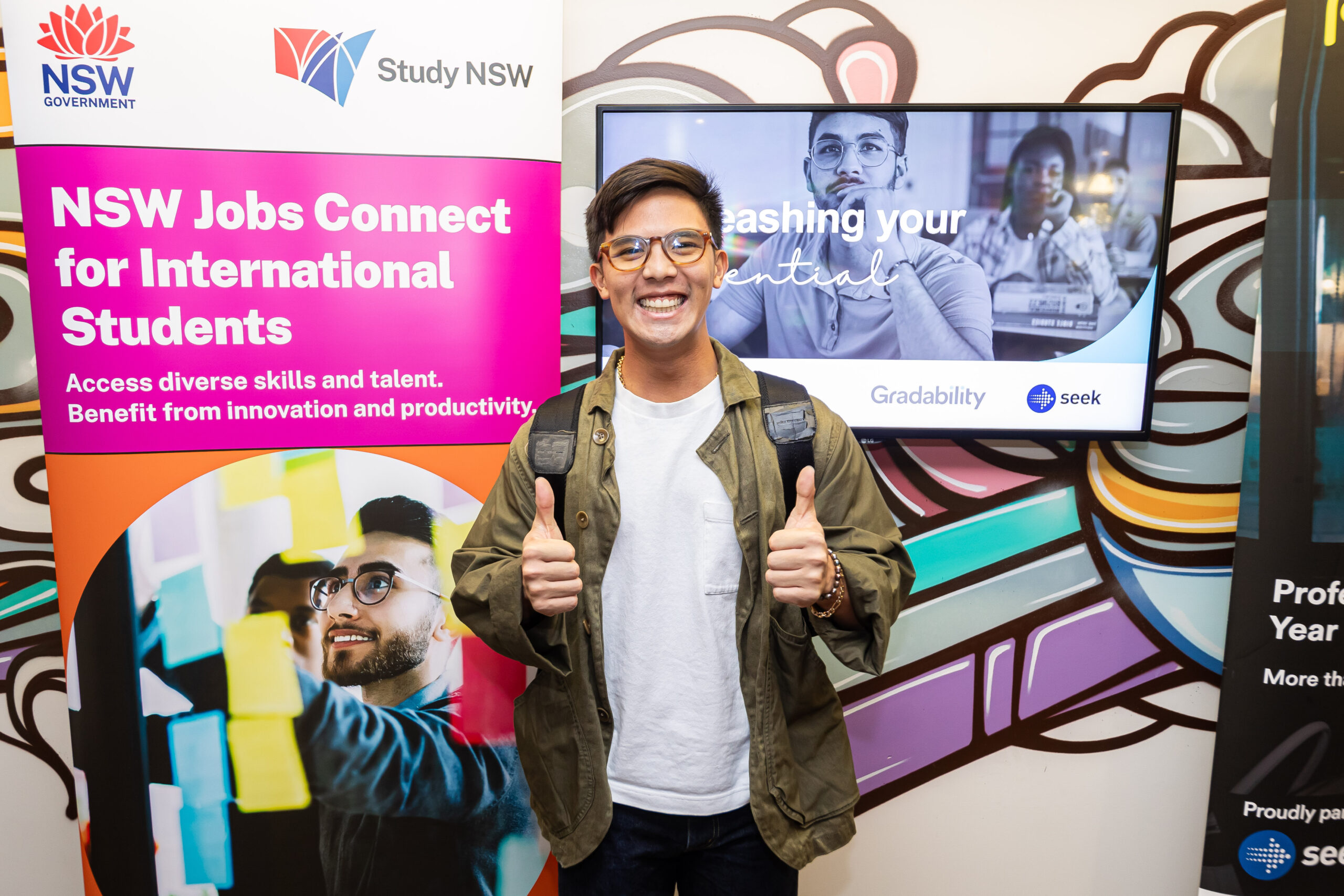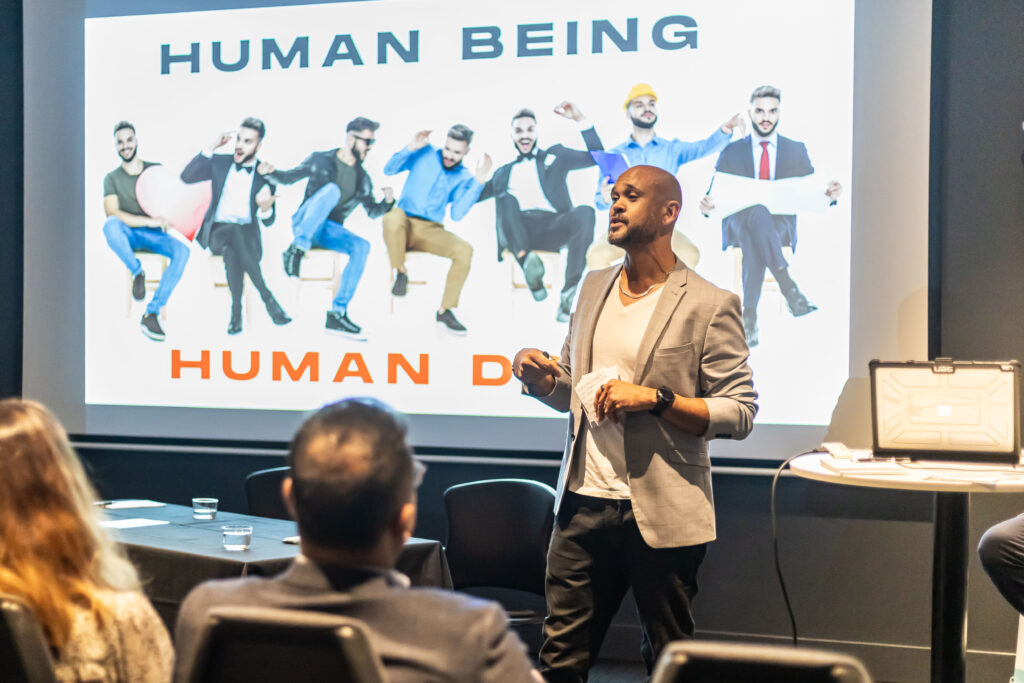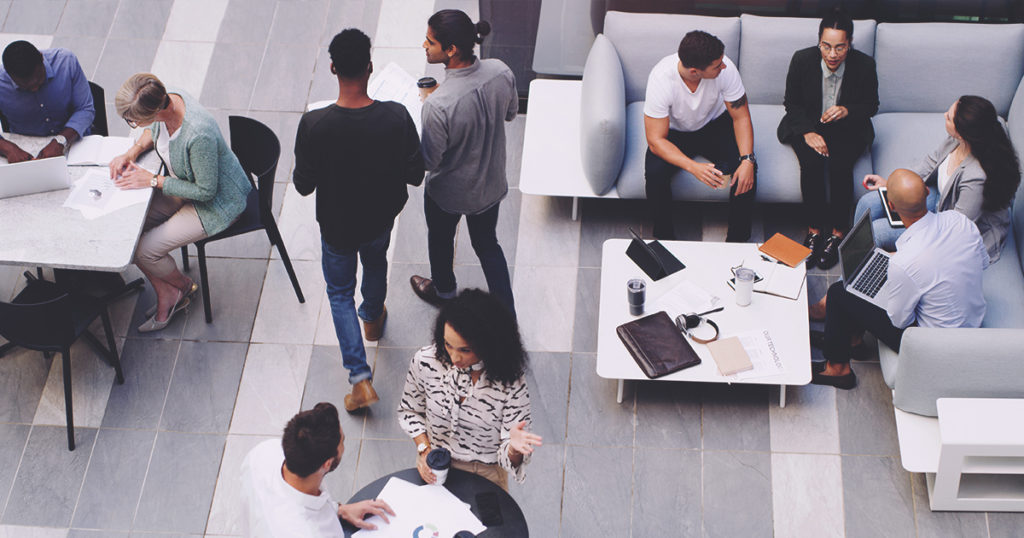When you board your flight to study in Australia, you’re full of light and excitement. You’re eager for the vast opportunities that are about to come with this new chapter, from reaching new academic heights to launching an international career.
But how can you ensure that your first step in kick-starting your career in Australia is the right one? What are some of the considerations you need to keep in mind when developing your professional self? And how can you make the most of Australia’s employment landscape, which is full of opportunity?

Answering questions like these is the exact purpose of events like Study NSW, SEEK and Gradability’s recent masterclass, Unleashing Your Potential: learn how to make the jump from study into a great career in Australia. Hosted in Sydney, the event featured a range of speakers who provided expert insights on the skills Australian employers look for, how international students should navigate workplaces in Australia, and how to identify their strengths and weaknesses.
One of the students in attendance was Nayonika Bhattacharya (they/she). Originally from Oman, Nayonika is an international arts and law student at the University of New South Wales (UNSW). Speaking to Insider Guides, Nayonika shared some of the key takeaways they gained from the event – and how they plan to apply them in their career.
1. The earlier you start, the better
It’s best to launch yourself in the employment market as early as possible. There’s no need to wait until your degree is completed to land your first role in the industry.
According to Nayonika, the speakers encouraged attendees to research and apply for various entry-level roles that may lead to their dream roles. You can use this as an opportunity to develop an understanding of Aussie work culture, develop skills and build transferable skills that you can bring to your future roles and teams.
2. Make long-term changes with the PR6 Model
One of the most interesting employability techniques Nayonika learned from the masterclass was the Predictive 6-Factor Resilience (PR6) Model. The PR6 Model consists of six critical areas that an individual must reflect and work on to improve their ability to respond to a problematic situation, develop resilience and build healthy habits.
The six elements of the PR6 Model are:
Tenacity – A person’s grit and determination when faced with an adverse situation. Tenacity is influenced by how people persist and the motivation that drives them to improve their lives.
Health – The PR6 Model focuses on the impact of health on your professional self. It takes into account your sleep quality, nutrition habits, and more.
Vision – This component challenges you to think about what your purpose is. It must be influenced by values that define who you choose to be as a person.
Composure – This component invites people to react calmly in challenging situations. To develop composure is to develop the ability to manage your emotional and mental reaction to an adverse outcome and to manage the stress associated with setbacks.
Reasoning – The ability to problem-solve and innovate to make rational decisions that align with your long-term vision for yourself.
Collaboration – Surrounding yourself with friends, family and peers you can rely on will play a critical role in helping you redefine your goals and understand what improvements you need to make in yourself professionally and personally.
3. Rejection is inevitable – but not insurmountable
According to Nayonika, rejection is a scary feeling and it can hurt, particularly for international students. While rejection is often an unavoidable reality, the masterclass highlighted that international students are more than capable of changing their mindset around rejection.
“The attachment we develop towards achievements, success, better outcomes, and a better quality of life often must be challenged when met with rejection,” they say, sharing the insights from the session.
Nayonika explains that the main piece of advice provided at the event is to “take a break post-rejection.”
“Taking a break is critical to ensure you do not mull over the feeling of rejection,” they explain.
Secondly, the speakers advised attendees to take some time reconnecting with friends and family who can provide support and validation. Being around people who know and understand you is essential, so you do not spiral into a loop of negative thoughts.
Ultimately, the masterclass reinforced to Nayonika that rejection is often just an opportunity to build and test your courage and resilience.
It’s also worth exploring community and educational events to participate in, find community programs to be involved in, and look for other opportunities your workplace or educational institution offers, such as Work Integrated Learning (WIL), internships, industry partner projects and industry experience programs. Sign up here.
Check out Study NSW’s Jobs Connect for International Students website for details on future masterclasses.
Subscribe to Study NSW newsletter to receive up-to-date news, stories, events and opportunities for international students.






